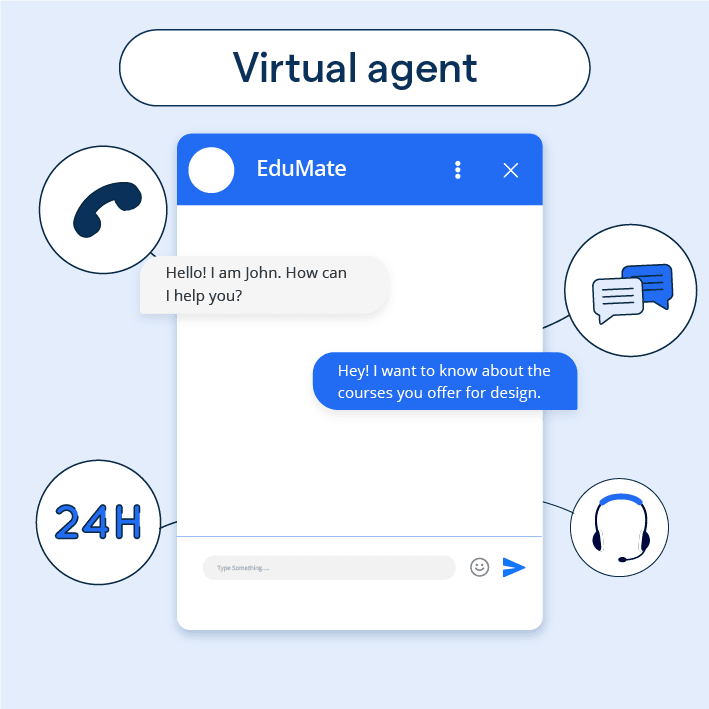What is a Virtual Agent?
A virtual agent is a computer program that uses AI to simulate human conversation. It can interact with customers through voice or text-based communication channels and provide assistance, answer questions, and resolve issues.
Virtual agents use natural language processing (NLP) and machine learning (ML) to understand customer inquiries and respond appropriately. They can provide personalized assistance, offer recommendations, and even process transactions.
Differences between Virtual Agent and Chatbot
While virtual agents and chatbots are similar, there are some differences between the two. Virtual agents are more advanced and can handle more complex inquiries, while chatbots are typically used for more basic tasks.
Types of Virtual Agents
There are several types of virtual agents, including rule-based agents, decision tree agents, and AI-based agents.
Rule-based agents follow a set of predefined rules, while decision-tree agents use a series of questions to guide the conversation. AI-based agents use machine learning to improve their responses over time.
Why Use a Virtual Agent?
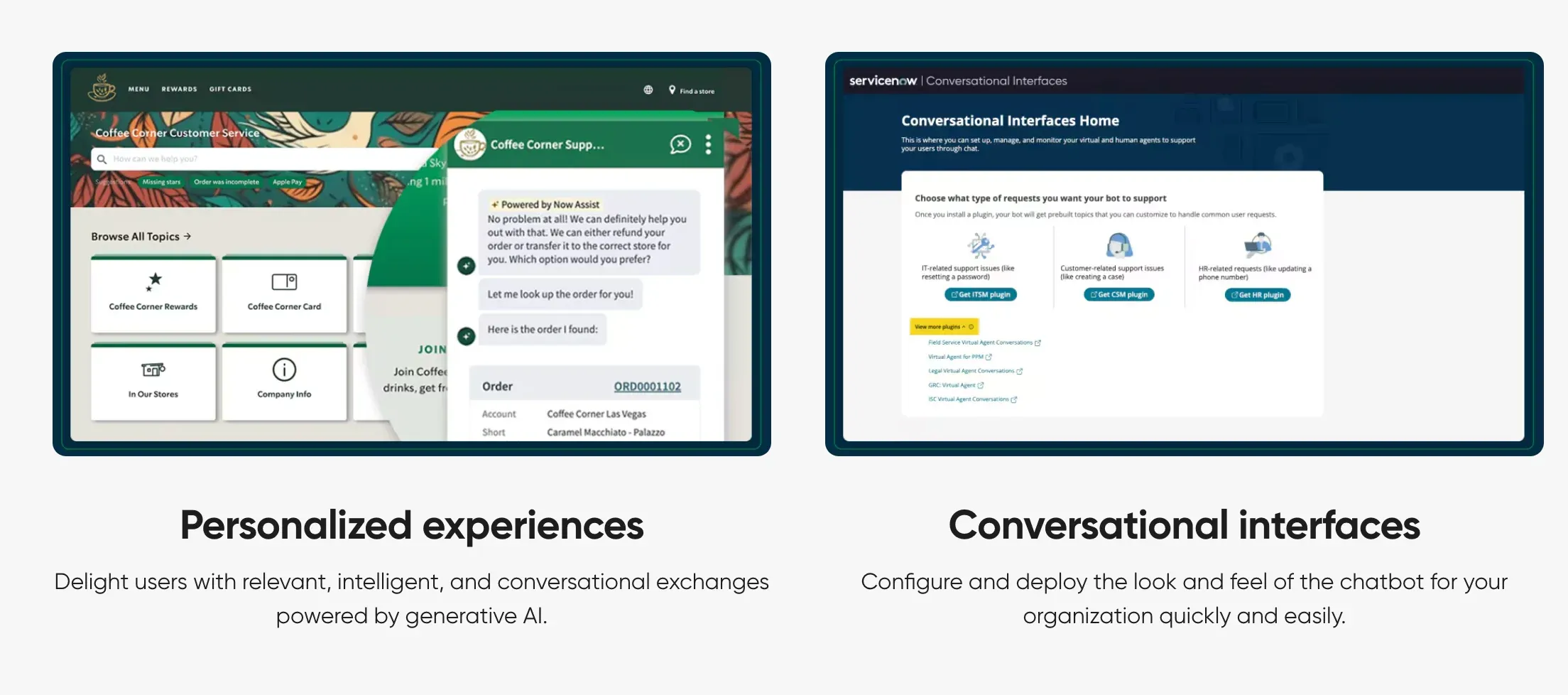
24/7 Customer Support
Virtual agents provide round-the-clock assistance, ensuring customers receive help whenever they need it, improving satisfaction and brand loyalty.
Cost Savings
By automating routine tasks and inquiries, virtual agents reduce the need for human agents, lowering operational costs and increasing efficiency.
Faster Response Times
Virtual agents can handle multiple queries simultaneously, offering quick and accurate responses, reducing wait times and improving user experience.
Scalability
Virtual agents can easily scale to handle increased customer inquiries during peak times, ensuring consistent support and maintaining service quality.
Personalized Experiences
Leveraging AI and machine learning, virtual agents can deliver personalized assistance and recommendations based on user preferences and behavior, enhancing customer engagement.
Who Uses Virtual Agents?
Various industries and organizations utilize virtual agents for enhanced customer support and streamlined communication.
Customer Support Teams
Virtual agents assist customer support teams by handling routine inquiries, resolving common issues, and providing instant support to customers 24/7.
Sales and Marketing Departments
Virtual agents help sales and marketing teams by engaging prospects, answering product-related questions, and guiding users through the sales funnel.
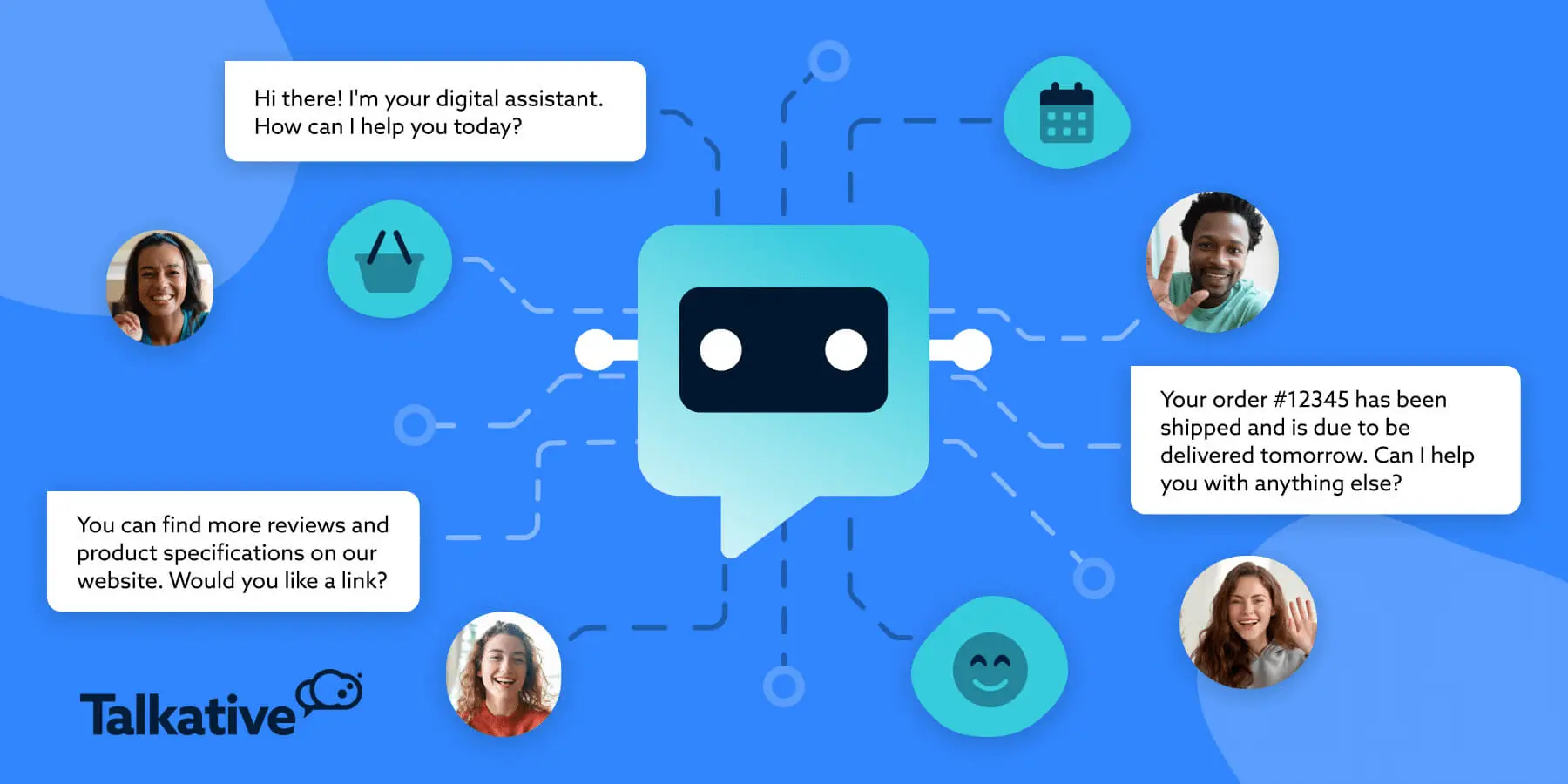
Human Resources Professionals
HR departments use virtual agents to streamline recruitment processes, answer employee queries, and provide support for onboarding and training activities.
IT Help Desks
Virtual agents support IT help desks by diagnosing and resolving common technical issues, guiding users through troubleshooting steps, and escalating complex cases to human agents.
E-commerce Businesses
E-commerce companies leverage virtual agents to enhance customer experience, provide personalized product recommendations, and assist with order tracking and returns.
How Do Virtual Agents Work?
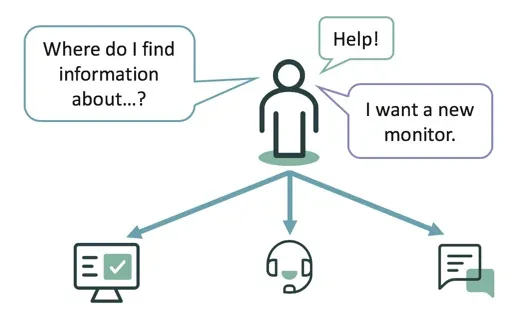
Natural Language Processing
Virtual agents use natural language processing (NLP) to understand and interpret human language, whether it's spoken or written.
It's like having a secret decoder ring that translates everyday conversations into a language the virtual agent can understand.
Machine Learning Algorithms
These agents rely on machine learning algorithms to learn from interactions and improve their performance over time.
It's like a student who gets better at a subject with each lesson, constantly growing and evolving.
Predefined Rules and Scripts
Virtual agents are often programmed with predefined rules and scripts to guide their responses and actions.
These rules help them navigate conversations and provide accurate, helpful information. It's like having a trusty playbook to follow when you're unsure of what to say or do.
Integration with External Systems
To provide relevant and personalized assistance, virtual agents can integrate with external systems, such as databases or customer relationship management (CRM) tools.
It's like having a direct line to a wealth of information and resources, ready to be tapped into whenever needed.
Continuous Learning and Improvement
Virtual agents are designed to learn from their interactions and user feedback, constantly refining their responses and abilities.
It's like having a built-in self-improvement system that helps them become better helpers with each conversation.
Overview of Virtual Agent Architecture
Design and structure of Virtual Agent systems, enabling automated interaction and assistance using AI algorithms.
Natural Language Processing (NLP)
NLP is a key component of virtual agent architecture, enabling the agent to understand user queries, process text or speech, and generate meaningful responses.
Machine Learning Algorithms
Virtual agents use machine learning algorithms to improve their understanding and responses over time, adapting to user interactions and providing more accurate assistance.
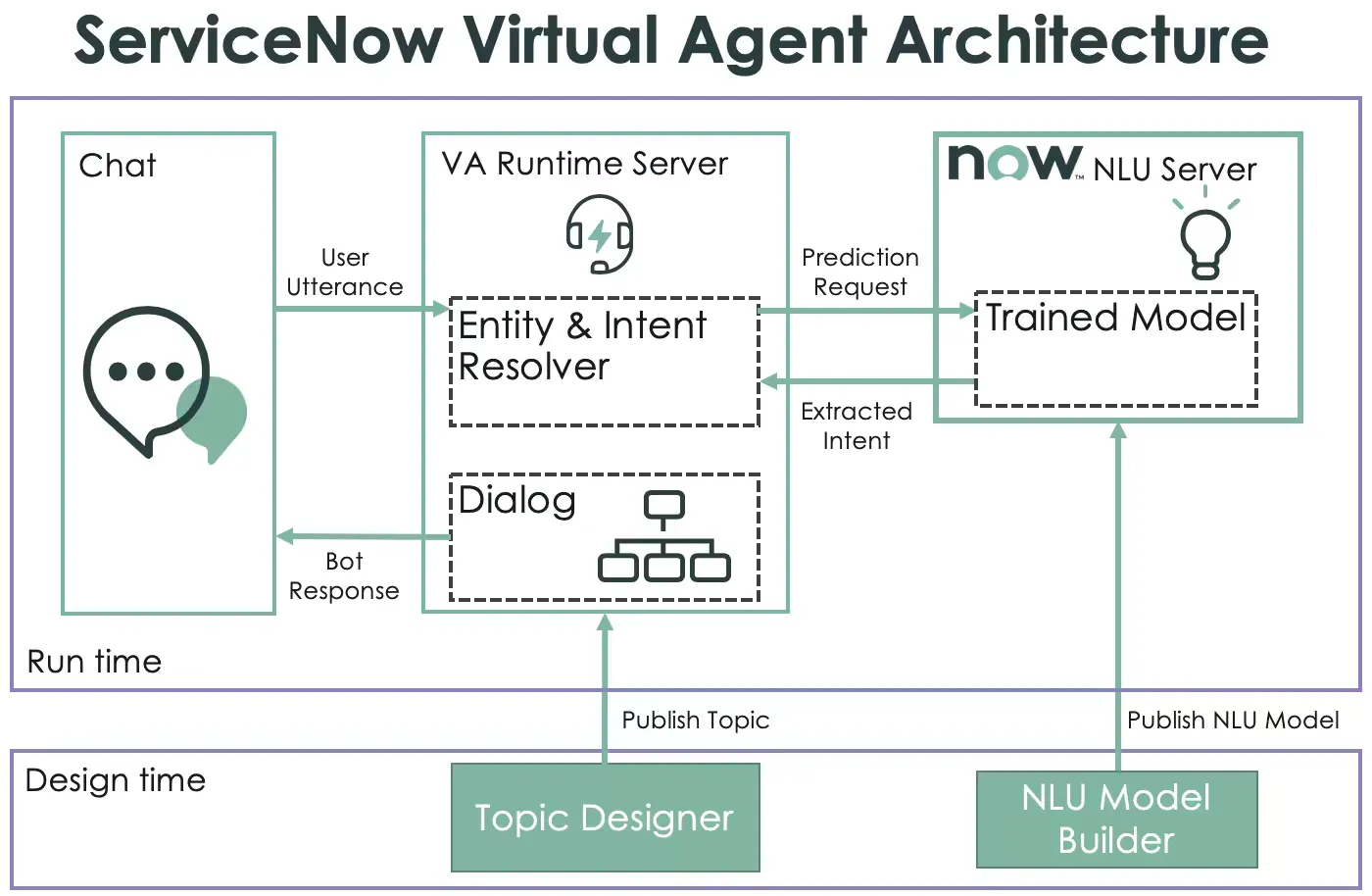
Integration with External Systems
Virtual agents can integrate with various platforms like CRM systems, databases, and social media channels, accessing and updating information seamlessly during interactions.
User Interface (UI)
The user interface, including chat or voice interfaces, allows users to communicate with the virtual agent, providing a convenient and user-friendly experience.
Security and Privacy
Virtual agent architecture incorporates encryption and authentication mechanisms to protect sensitive data, ensuring secure and reliable interactions between users and the agent.
Virtual Agent vs Chatbots
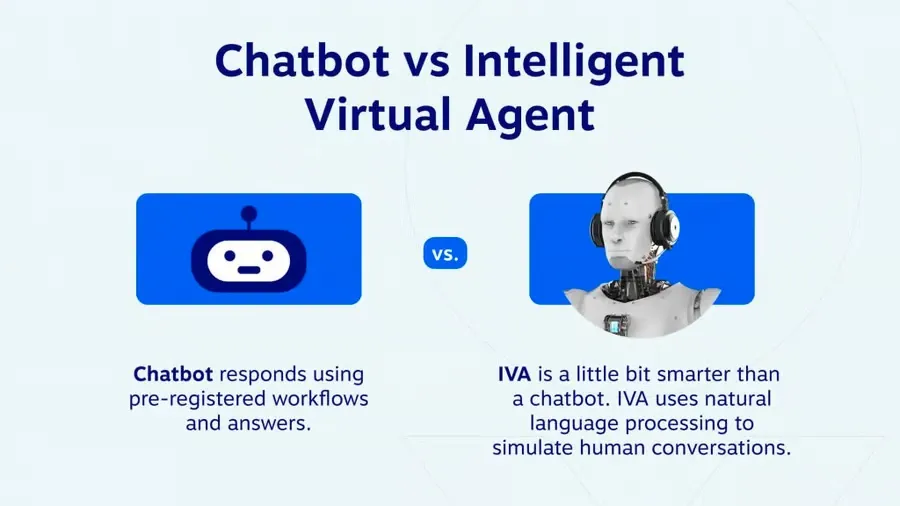
Level of Complexity
Virtual agents are typically more advanced than chatbots, capable of handling complex tasks and understanding context, while chatbots are designed for simpler, rule-based interactions.
Natural Language Processing
Virtual agents often possess advanced natural language processing abilities, enabling them to understand and respond to user queries more accurately and naturally than chatbots.
Learning and Adaptation
Virtual agents can learn and adapt over time, improving their performance and understanding of user needs, while chatbots typically rely on pre-defined rules and scripts.
Integration with External Systems
Virtual agents can integrate with various external systems, such as CRM, ERP, or databases, to access and process information, whereas chatbots are often limited in their integration capabilities.
Human Agent Collaboration
Virtual agents are designed to work alongside human agents, handling routine tasks and escalating complex issues to humans, while chatbots are generally standalone solutions for basic interactions.
When to Use Virtual Agent vs Chatbot?
Choosing between virtual agents and chatbots depends on the complexity of the task and the level of human-like interaction required.
Handling Complex Queries
When dealing with complex customer inquiries that require more advanced problem-solving skills, a virtual agent might be a better fit than a chatbot.
It's like calling in the big guns when you need some extra firepower to tackle a tricky issue.
Personalized Customer Experiences
If you're looking to provide a more personalized and tailored experience for your customers, a virtual agent might be the way to go.
They can tap into customer data and preferences to create a customized interaction. It's like having a personal shopper who knows exactly what you like.
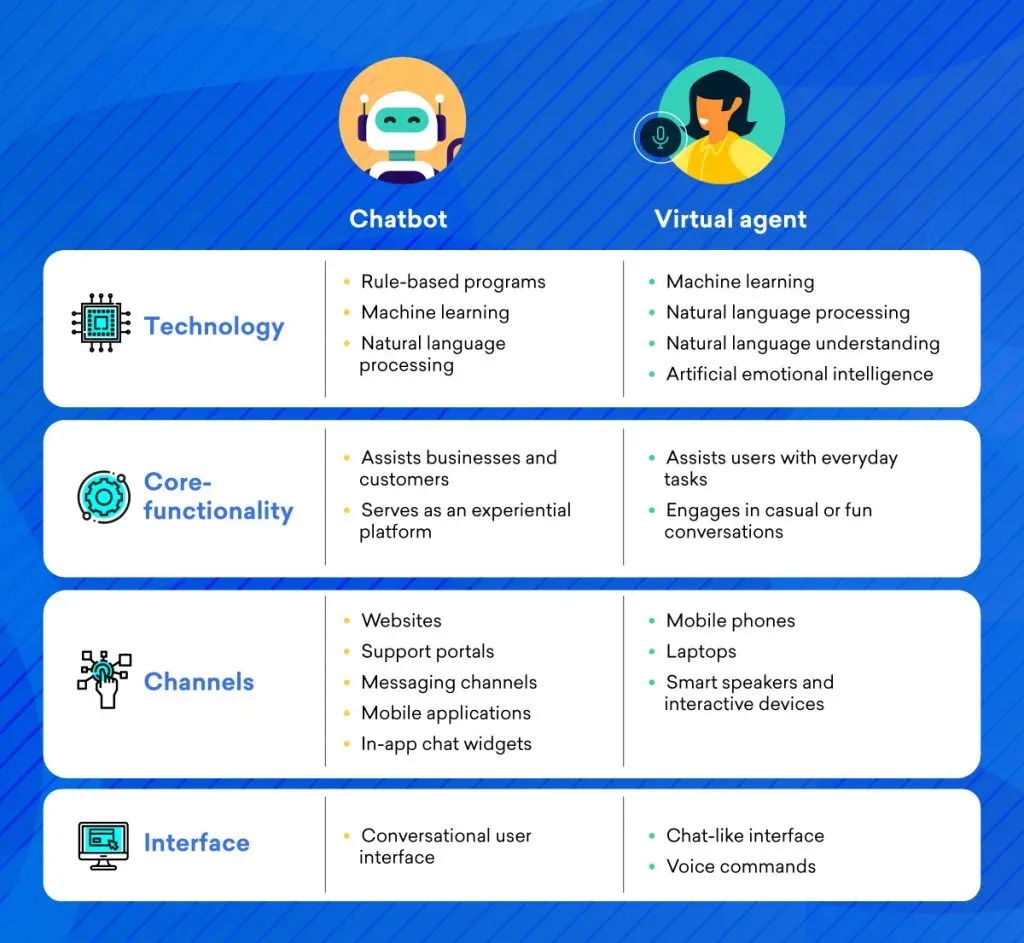
Multi-Channel Support
For businesses that need to offer support across various channels, such as email, phone, and social media, virtual agents can be a more suitable choice.
They're like multi-talented performers who can juggle different roles with ease.
Simple FAQs and Routine Tasks
For straightforward questions and routine tasks, a chatbot might be sufficient to handle customer inquiries.
They can quickly provide answers and assistance without the need for more advanced capabilities. It's like having a handy helper who's always ready to lend a hand.
Cost and Resource Considerations
When considering the cost and resources needed to implement and maintain a virtual agent or chatbot, chatbots may be more suitable for businesses with limited budgets or smaller customer service teams.
It's like choosing between a luxury car and a reliable compact – both can get you where you need to go, but one might be more affordable and practical for your needs.
Frequently Asked Questions (FAQs)
What is a Virtual Agent?
A virtual agent is an AI-powered customer service representative that interacts with users, providing assistance and resolving issues through chat or voice interactions.
How do Virtual Agents work?
Virtual agents use natural language processing (NLP) and machine learning algorithms to understand user queries, access relevant information, and generate appropriate responses.
What are the benefits of using a Virtual Agent?
Virtual agents offer 24/7 support, reduce response times, improve customer satisfaction, and lower operational costs by automating routine tasks and inquiries.
Can Virtual Agents integrate with existing systems?
Yes, virtual agents can be integrated with various platforms, such as CRM systems, databases, and social media channels, to access and update information seamlessly.
Are Virtual Agents secure and reliable?
Virtual agents are built with security in mind, using encryption and authentication mechanisms to protect sensitive data and ensure privacy during interactions.
